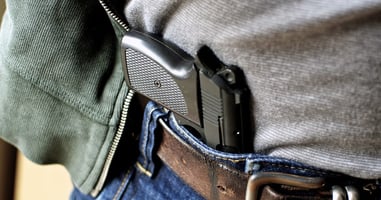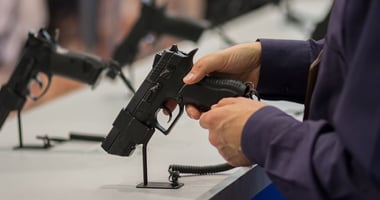About 8.9 percent of individuals who self-report as having patterns of impulsive angry behavior own...
Danger, Risk of Violence—Not a Mental Illness Diagnosis—Should Rule Gun Restrictions, New Report Says
 |
First, strengthen state laws to temporarily prohibit individuals from buying or possessing guns after a short-term involuntary psychiatric hospitalization, when there is a higher risk of violence.
Second, similar limits should be placed on people likely to be dangerous, such as those convicted of a violent misdemeanor, those under a temporary domestic-violence restraining order, and anyone convicted at least twice in five years of either misdemeanors involving a controlled substance or of driving while intoxicated.
Third, permit law-enforcement officers to remove firearms when identifying someone who poses an immediate or credible threat to self or others, with appropriate due-process protections.
“Importantly, successful implementation of our recommendations depends on all firearms transfers requiring a background check under federal law,” concluded the report.
“This is an important effort to refocus the discussion about gun violence on groups that represent high risks for violence, rather than continuing with a misdirected focus on people with mental illness,” said forensic psychiatrist and past APA President Paul Appelbaum, M.D., a member of the consortium and a professor of psychiatry, medicine, and law at Columbia University College of Physicians and Surgeons, in an interview with Psychiatric News.
To read more about gun violence and mental illness, see the Psychiatric News articles " Gun-Policy Advocates Cite Mental Illness, But Lack Supporting Evidence," and " Study Finds Psychiatric Factors Not Linked To Multiple Homicide Victims."
(Image: BikeRiderLondon/Shutterstock.com)





